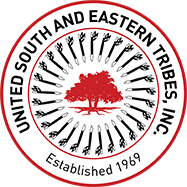FEMA Public Assistance in Support of COVID-19 Vaccine Administration to Children
November 10, 2021
FEMA’s Public Assistance program will reimburse 100% of eligible costs associated with administering vaccines to children and adults until December 31, 2021. After December 31, 2021, FEMA funding for COVID-19 response will continue, however the percentage of costs covered may change. FEMA will reimburse the cost of a wide range of activities associated with vaccine administration including community engagement and information dissemination to promote vaccination availability, scheduling, and accessibility as well as activities to increase public confidence in and uptake of COVID-19 vaccines.
FEMA and the Indian Health Service (IHS) will hold a webinar for tribal leaders and representatives to explain available assistance on November 10, 2021, at 2:00pm ET. You do not need to register for the webinar and the link follows: https://fema.zoomgov.com/j/1600559430
- Closed captioning will be available to participants during the Zoom session.
- If you need an ASL interpreter, please contact FEMA-Tribal@fema.dhs.gov by Monday, November 8, 2021.
Who can request funding?
Vaccination funding is being provided under FEMA’s Public Assistance program and available to state, local, tribal, and territorial (SLTT) governments and eligible private nonprofit organizations that own or operate medical facilities carrying out vaccination administration activities for people of any CDC-approved age. SLTT governments may also contract with medical providers, including private for-profit entities, to carry out any eligible vaccination activity described in FEMA’s Coronavirus (COVID-19) Pandemic: Medical Care Eligible for Public Assistance (Interim) (Version 2) policy. Funding is provided on a reimbursement basis and FEMA will prioritize reimbursement to ensure funding is not a barrier to quick, effective, and equitable vaccination efforts.
What will funding support?
FEMA will fund eligible vaccination activities including:
- Vaccination facilities including community vaccination centers, mass vaccination sites and mobile vaccinations including necessary security and other services for sites.
- Medical and support staff including contracted and temporary hires to administer vaccinations.
- Training and technical assistance specific for individuals storing, handling, distributing, and administering of COVID-19 vaccinations.
- Personal protective equipment, other equipment, supplies, and materials required for storing, handling, distributing, and administering COVID-19 vaccinations.
- Transportation support such as refrigerated trucks and transport security, for vaccine distribution as well as reasonable transportation to and from the vaccination sites for children and families with limited or no mobility to get to a vaccine site.
- Onsite infection control measures and emergency medical care for children and families at vaccination sites.
- Communication efforts that keep the public informed including public messaging campaigns, public service announcements, flyers, newspaper advertisements, websites, translation services, in-person community engagement, and call centers or websites to assist with scheduling appointments or answering questions for children and their families.
Is funding available for vaccines for children?
Activities associated with providing vaccines to children between the ages of 5-11, administered in accordance with FDA Emergency Use Authorizations, are eligible for funding. Vaccines were previously approved for children age 12 and older as well as adults.
FEMA encourages applicants for Public Assistance funding to work with other community partners in communicating with and engaging the public to support full implementation of COVID-19 vaccinations. The U.S. Department of Health and Human Services has also launched a COVID-19 public education campaign at COVID-19 Community Corps | WECANDOTHIS.HHS.GOV. The public education campaign is a national initiative to increase public confidence in and uptake of COVID-19 vaccines while reinforcing basic prevention measures such as mask wearing and social distancing.
FEMA remains committed to supporting COVID-19 vaccinations for children and their families of Tribal Nations as they become eligible through FDA and CDC approvals and guidelines.
